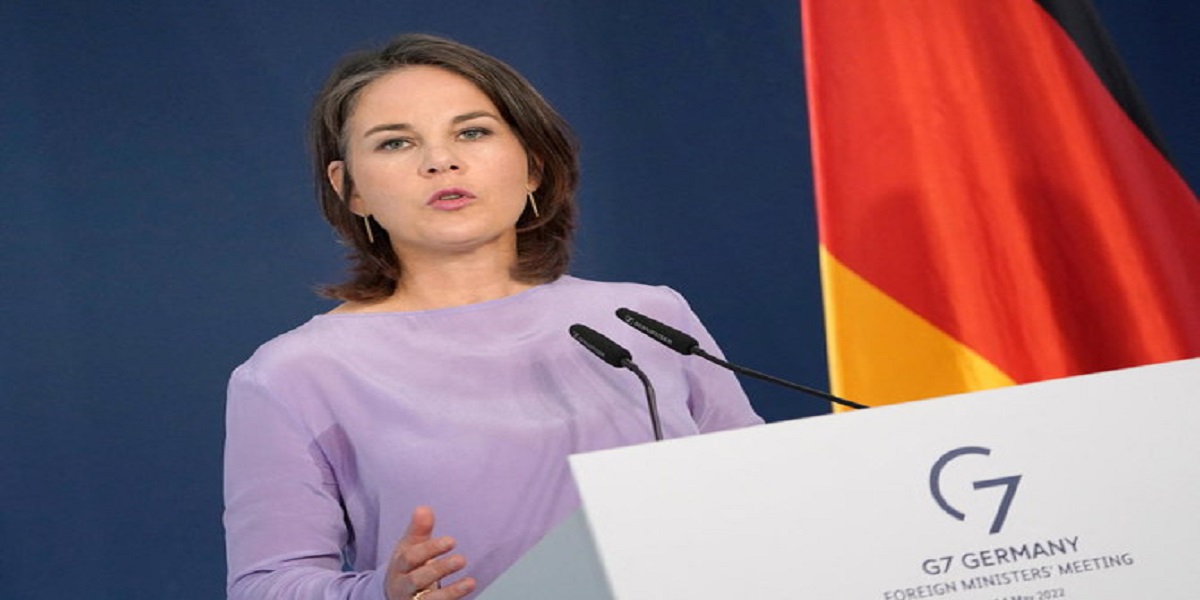The Group of Seven major economies cautioned on Saturday that the Ukraine conflict is fueling a worldwide food and energy crisis that threatens impoverished nations, and that immediate action is required to unblock grain stocks that Russia is stopping from leaving Ukraine.
The conflict has become a “global disaster,” according to German Foreign Minister Annalena Baerbock, who held a gathering of top G-7 officials.
According to Baerbock, up to 50 million people, primarily in Africa and the Middle East, may go hungry in the next months unless measures are found to release Ukrainian grain, which accounts up a sizable portion of the global supply.
In statements released at the end of the three-day meeting on Germany’s Baltic Sea coast, the G-7 pledged to provide further humanitarian aid to the most vulnerable.
“Russia’s war of aggression has generated one of the most severe food and energy crises in recent history which now threatens those most vulnerable across the globe,” the group said.
“We are determined to accelerate a coordinated multilateral response to preserve global food security and stand by our most vulnerable partners in this respect,” it added.
Canada’s foreign minister, Melanie Joly, said her country, another major agricultural exporter, stands ready to send ships to European ports so Ukrainian grain can be brought to those in need.
“We need to make sure that these cereals are sent to the world,” she told reporters. “If not, millions of people will be facing famine.”
The G-7 countries also urged China not to assist Russia by weakening international sanctions or rationalizing Moscow’s actions in Ukraine.
They said that Beijing should defend Ukraine’s sovereignty and independence rather than “help Russia in its campaign of aggression.”
The G-7 encouraged China to “stop using media manipulation, deception, and other tactics to justify Russia’s actions against Ukraine.”
The alliance, which includes the United Kingdom, Canada, France, Germany, Italy, Japan, and the United States, also restated its position that Russian-seized territory must be restored to Ukraine.
“We will never recognize borders Russia has attempted to change by military aggression,” they said.
The summit in Weissenhaus, northeast of Hamburg, was advertised as an opportunity for authorities to examine the war’s larger geopolitical, energy, and food security ramifications, as well as ongoing international efforts to combat climate change and the pandemic.
In a series of concluding comments, the G-7 nations addressed a wide variety of global issues, from the situation in Afghanistan to Middle Eastern concerns.
On Friday, Ukrainian Foreign Minister Dmytro Kuleba urged friendly nations to send additional military assistance to Kiev and to intensify pressure on Russia, even by taking its assets overseas to pay for Ukraine’s reconstruction.
Kuleba said his nation is still eager to negotiate with Russia about unblocking grain supplies held in Ukraine’s silos, as well as finding a political solution to stop the war, but has heard “no constructive reply” from Moscow so far.
In an interview published Saturday, German Chancellor Olaf Scholz stated that he had not noticed any recent shift in Putin’s posture.
Scholz, who spoke with Putin on the phone for several hours on Friday, told the German news portal t-online that Putin had failed to achieve the military goals he set out at the beginning of the war while losing more Russian soldiers than the Soviet Union did throughout its decade-long campaign in Afghanistan.
“Putin should slowly begin to understand that the only way out of this situation is through an agreement with Ukraine,” Scholz was quoted as saying.
One idea discussed at the G-7 meeting was whether Russian state assets frozen abroad can be used to pay for the reconstruction of Ukraine.
“Russia bears responsibility for the massive damage resulting from this war,” Baerbock said. “And that’s why it’s a question of justice that Russia should have to pay for this damage.”
But she added that unlike in Canada — where legislation allows for seized funds to be repurposed — the legal basis for doing so in Germany is uncertain.
“But that’s precisely what such meetings are for, to have an exchange about how to resolve these legal questions,” Baerbock said.
On Saturday and Sunday, several of the foreign ministers were scheduled to attend an informal conference of NATO diplomats in Berlin.
This meeting will address bids by Finland and Sweden to join the military alliance amid concerns about Russia’s threat, as well as methods for NATO to help Ukraine without becoming involved in the crisis.
US Secretary of State Antony Blinken, who was unable to attend the G-7 summit due to a COVID-19 illness, was scheduled to attend the NATO meeting.
For the latest International News Follow BOL News on Google News. Read more on Latest International News on oldsite.bolnews.com




















